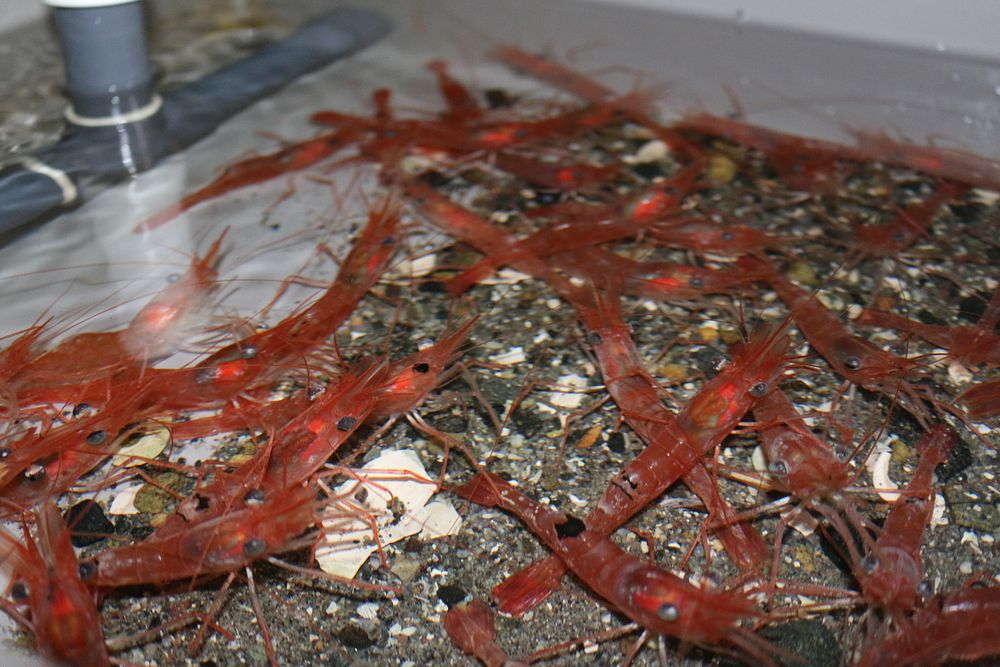17. november 2020 nyhet
Akvaplan-niva researcher Lionel Camus together with his colleagues Jenny Bytingsvik and Luca Tassara has conducted ecotoxicological research in collaboration with CEDRE (France) and North Carolina Wilmington University (USA). The project was funded by the American Petroleum Institute (API).
The aim of the study was to characterize the sensitivity of three deep-water species to oil&gas; associated aromatic compounds, chemical dispersant (Corexit), and Alaskan North Slope crude oil. The three species were the northern shrimps (Pandalus borealis) the stony corals (Lophelia pertusa) and the deep-water sablefish of the Pacific (Anoplopoma fimbria).

Photo: Northern shrimps (Pandalus borealis)
Results showed that corals were more sensitive to dispersant than shrimps. The species have a similar degree of sensitivity for hydrocarbons. Sablefish are sensitive to the chemical dispersant within the range reported for other fish species. However, accumulated oil compounds in sablefish lies at the lower end of the sensitivity range that has been established for aquatic species.
 Photo: Coral experiment set up
Photo: Coral experiment set up
Overall, project findings indicate that deep-sea species exhibit the same acute sensitivity to dispersant, hydrocarbons and oil as pelagic species. This novel data set are published in Environmental Toxicology and Chemistry (DOI: 10.1002/etc.4165) and Marine Pollution Bulletin (DOI: 10.1016/j.marpolbul.2020.111202) and are available for stakeholders for managing deep-water oil spill and for decision making related to subsea dispersant injection at high depth.
